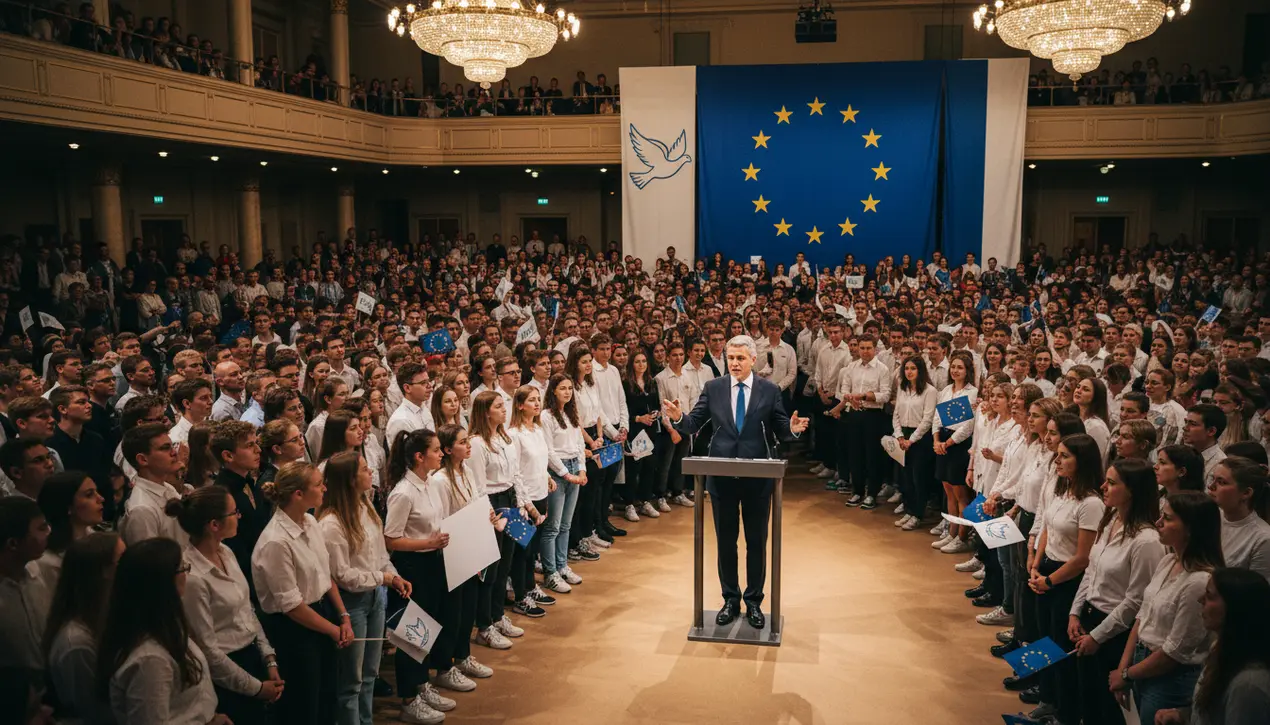
Politicsgovernments & cabinetsPublic Statements
German Chancellor Merz Stresses Europe's Importance, Distances from AfD.
RO
Robert Hayes
2 hours ago7 min read
In a speech delivered with the gravity of a statesman confronting a pivotal historical moment, German Chancellor Friedrich Merz addressed his Christian Democratic Union’s youth wing this past Saturday, delivering a stark and unequivocal disavowal of the far-right Alternative for Germany (AfD) while forcefully championing the foundational importance of Europe and the European Union. This was not merely a routine party address; it was a strategic delineation of the battle lines for Germany's political soul, a conscious effort to anchor his party firmly in the pro-European center and isolate the forces of nationalism that have been gaining a troubling foothold.Merz’s rhetoric echoed the kind of clear-eyed, principled stance one might recall from a Churchillian discourse on defending democracy from its internal adversaries, framing the EU not as a bureaucratic abstraction but as the indispensable guarantor of peace, prosperity, and collective sovereignty on a continent with a painful history of conflict. The AfD, which has surged in recent polls to become Germany's second most popular party, was implicitly cast in the role of a destabilizing element, a party whose skepticism of the European project and often xenophobic rhetoric places it outside the boundaries of democratic consensus.By making this distinction so explicit, Merz is engaging in a high-stakes political maneuver, attempting to reclaim voters who may be flirting with protest votes by reminding them of the CDU's historical legacy as a pillar of European integration, from Konrad Adenauer's post-war vision to Helmut Kohl's unwavering push for the Maastricht Treaty and the euro. The context is critical: Europe faces a constellation of crises, from the ongoing economic aftershocks of the Ukraine war and the resulting energy crisis to the looming strategic challenge posed by a resurgent Russia and an increasingly competitive China.In this fragile landscape, a fragmented Europe led by inward-looking, nationalist parties is a prospect that alarms diplomats and economists alike. Merz’s speech, therefore, can be interpreted as a pre-emptive strike, an attempt to consolidate a governing coalition of the sensible center-right and center-left, potentially excluding the AfD through a 'cordon sanitaire' similar to those used in other European nations to quarantine far-right influence.The consequences of this political positioning are profound, not just for Germany but for the entire EU bloc. A strong, stable Germany committed to the European project is the engine of European policy; a Germany weakened by internal political strife and powerful anti-EU sentiments would cripple the union's ability to act decisively on the world stage.Merz is effectively arguing that the CDU must be that bulwark, and his speech was a deliberate, analytical framing of the upcoming European and state elections not as mere political contests, but as a fundamental choice between a future of cooperative strength and a retreat into a dangerous, fragmented past. The subtext was a warning: the very stability that has defined modern Germany cannot be taken for granted, and the forces that would undermine it are no longer on the fringes but are knocking at the doors of power.
#featured
#Friedrich Merz
#Germany
#European Union
#AfD
#speech
#party youth wing
#politics
Stay Informed. Act Smarter.
Get weekly highlights, major headlines, and expert insights — then put your knowledge to work in our live prediction markets.
Comments
Loading comments...
© 2025 Outpoll Service LTD. All rights reserved.